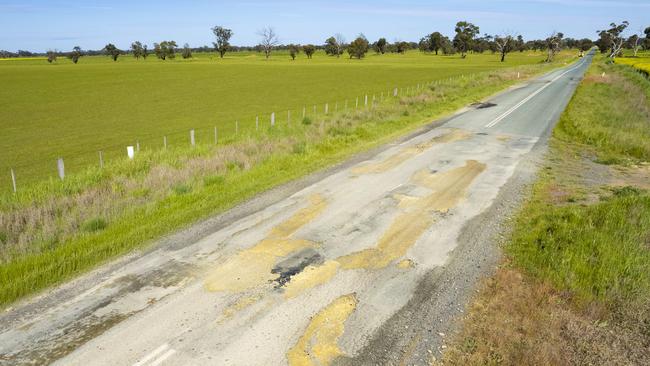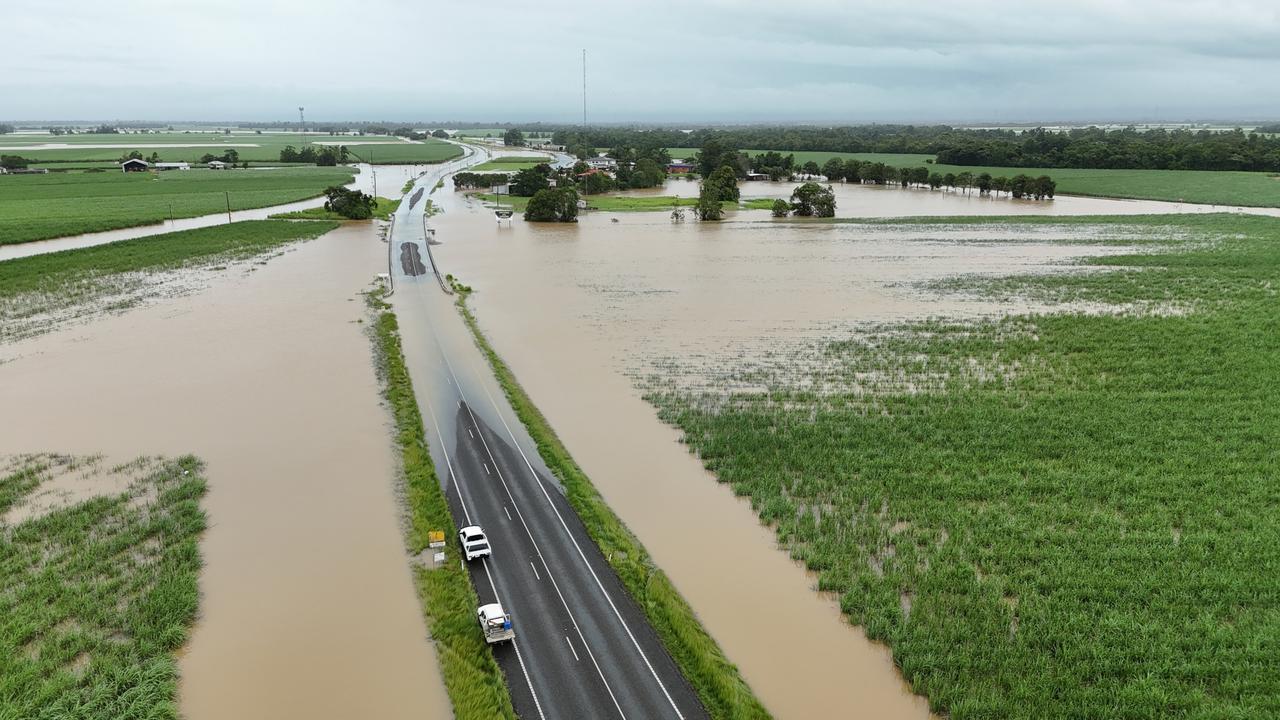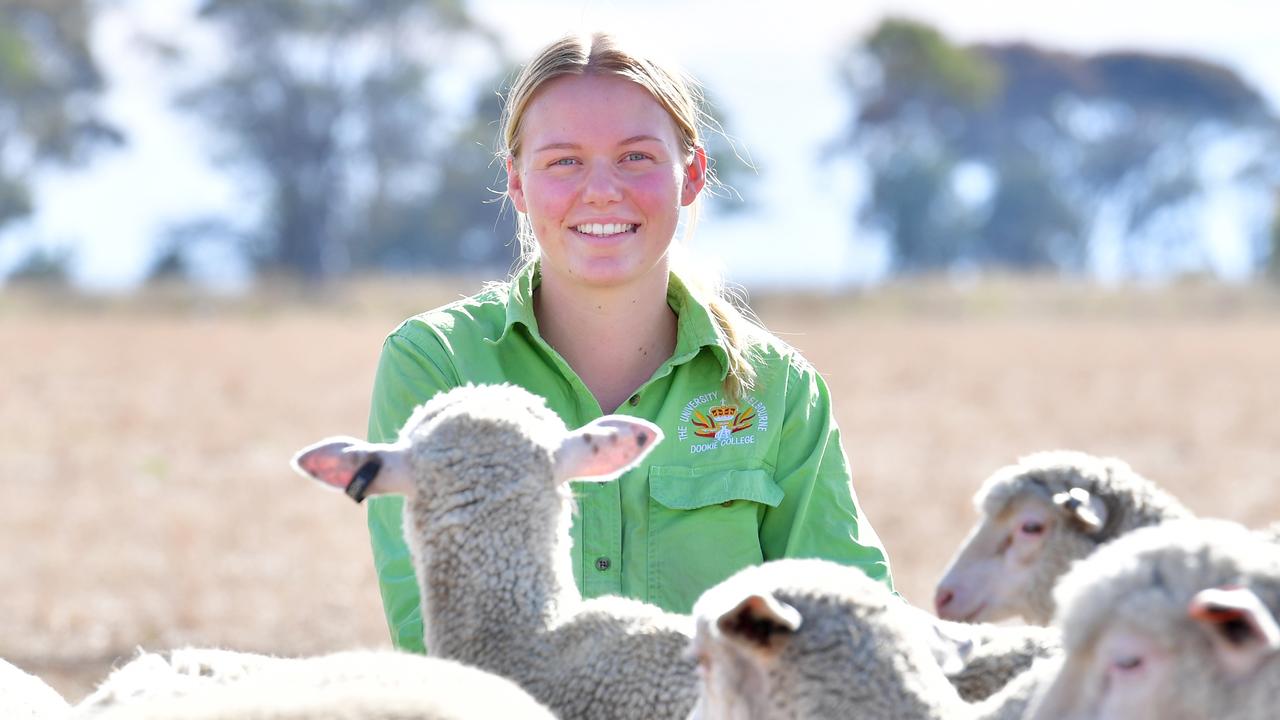Councils declare roads emergency: billions of dollars needed in wake of floods
Regional councils faced a road replacement bill of $17.8 billion before heavy rain and floods hit. Now they need far more.

NSW and Victorian regional councils have declared a roads emergency as they struggle to find the funds to repair vast stretches of their flood-damaged 300,000km local road network.
“Road repair funding pledged to date has fallen well short of what is required so we’re declaring this statewide roads emergency to get help before the situation becomes even worse,” Broken Hill mayor and Local Government Association NSW president Darriea Turley said.
“In the coming weeks, close to $4 billion worth of crops (in NSW) will need to be harvested and transported, yet harvesting machinery is unable to access some of the most productive regions in our state.”
Municipal Association of Victoria president and Pyrenees Shire mayor David Clark backed the call for a roads emergency, saying the $165 million the state government had put on the table to date was “nowhere near what’s needed”.
Local roads were already in poor condition before the floods, with the Australian Local Government Association warning 8 per cent of sealed and 14 per cent of unsealed roads across the nation needed to be replaced at a cost of $17.8 billion.
The ALGA has called for that assistance to be doubled, given successive Labor and Coalition governments have steadily cut assistance grants from almost 1 per cent of the federal tax take in 1996 to 0.52 per cent today.
Cr Clark said 11 years of rate capping in NSW and six years of the same in Victoria, plus a declining share of the federal tax take going into assistance grants, had taken a heavy toll on roads just as freight loads soared.
“When we were wool growers we’d be carting 300kg to the hectare,” Mr Clark said. “Now that’s three tonnes per hectare (of grain).”
Rochester Community Recovery Committee chairman Leigh Wilson said many roads and bridges, built in the 1950s and ‘60s to carry a 10-tonne truck travelling at 50km/h, needed to be replaced.
“But now they have to deal with a B-double travelling across them at 100km/h, so the cost of replacement is not $1 million, it’s $5 million – they have to be built better.”
One of the biggest issues confronting councils has been the build-up of water in uncleared or poorly maintained drains and culverts, which Australian Road Research Board chief Michael Caltabiano said seeped in and destroyed the road base.
“That’s why the outer wheel path is the first part of the road to fail,” Mr Caltabiano said. “Water is kryptonite to roads.”
Even VicRoads has struggled to maintain drains and culverts on its own much smaller 23,000km network of arterial roads and highways.
DoT’s reports also show that despite ongoing wet conditions, it cut back cleaning out culverts and roadside drainage pits from 7000 in 2020-21 to 4000 in 2021-22 which contractors warn has led to water building up and undermining adjoining road foundations.
Australian Local Government Association president Linda Scott said NSW regional councils were staring at flood-damaged road repair bills equivalent to a third of their annual budgets.
Gunnedah is one of the hardest hit areas of the state, with seven floods in the last year including four in the past two months.
“We know it’s in the many millions of dollars,” Gunnedah Shire mayor Jamie Chaffey said.
“With our current resources it will take many years to get back to normal.”
Cr Chaffey said “primary producers couldn’t get equipment in to start the harvest of whatever is left that is harvestable or trucks in and out to get that grain or produce away from farms.”
Federal Infrastructure, Transport, Regional Development and Local Government Minister and Ballarat MP Catherine King failed to respond to The Weekly Times when asked: given the floods and the massive regional road repair bill, including in the Minister’s backyard, what action was being taken to lift the federal Financial Assistance Grants and Roads to Recovery funding.




